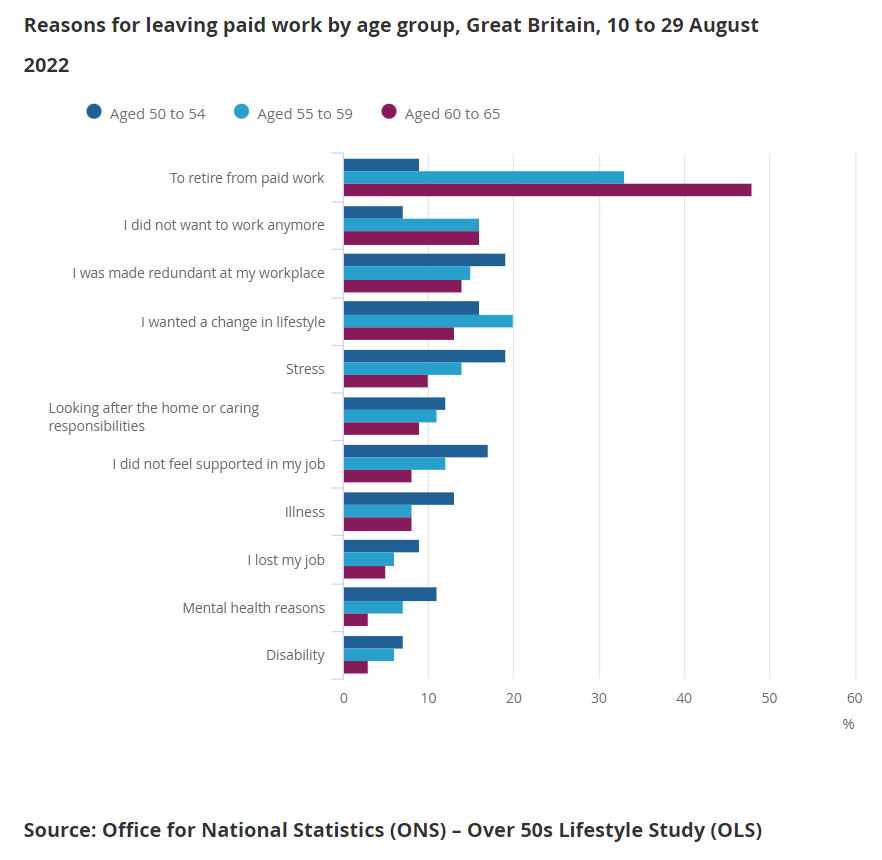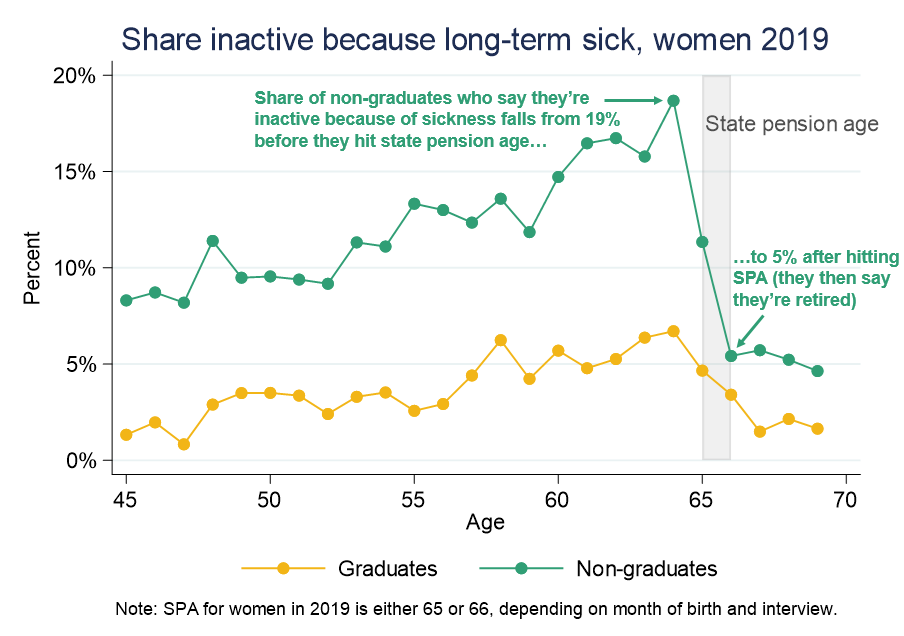Thread
I think this whole argument over retirements v sickness is a distraction. The reasons people give for inactivity change over time - what matters is that they're inactive.
In 2019, the % of women who say they’re inactive because of sickness falls from 15% at age 64 to 5% at 66.🧵
In 2019, the % of women who say they’re inactive because of sickness falls from 15% at age 64 to 5% at 66.🧵
If you look at 2018, this fall happens between age 63 and 65, because the state pension age was lower then.
Basically, people leave the workforce, but don't say they're retired until they hit the state pension age.
Basically, people leave the workforce, but don't say they're retired until they hit the state pension age.
Surely we don't believe there's an actual fall in sickness at age 63 or 64, or that the relationship between sickness and age has actually changed between 2018 and 2019.
People retire for all sorts of reasons, including because of stress, or feeling like their work isn't good for their health, or that their employer isn't making adequate adjustments.
We should focus on the fact that over-50s have exited the workforce earlier since the pandemic, and not get bogged down in the reasons they give in one survey.
By the way, the @ONS Over 50s Lifestyle Study allows people to give multiple reasons for leaving work. I bet that a lot of people who say they retired also cite health-related reasons.
But it seemed a bit overkill to apply for secure data for a tweet. 😜
But it seemed a bit overkill to apply for secure data for a tweet. 😜
Also interesting: this reclassification (from sickness to retirement) is far more pronounced among lower-educated people.
My guess is that non-graduates don't tend to have private pensions, so only consider themselves retired after they get the state pension.
My guess is that non-graduates don't tend to have private pensions, so only consider themselves retired after they get the state pension.
Whereas graduates, who leave the workforce for whatever reason (including sickness), start drawing down private pensions and so say they're retired.
Means we should be wary of comparing reasons for retirement by education, income etc.
Means we should be wary of comparing reasons for retirement by education, income etc.



